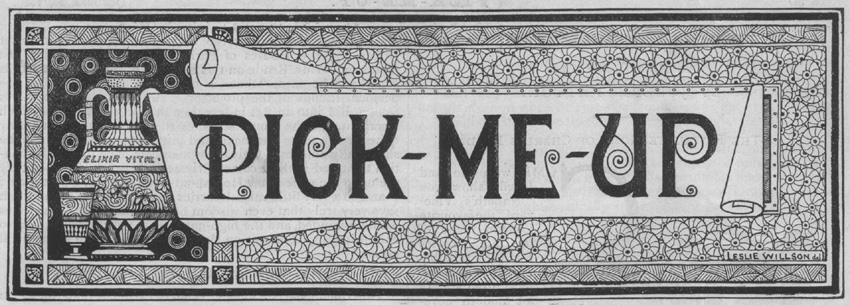1892
Hatton
|

|
|
Joseph Hatton (1841-1907) edited a number of magazines and he may have
been referring to the Sunday Times which he edited in the 1870s. There are
no references to him in Collins's letters. He was a member of the Garrick
club and may have met Collins there. He is wrong about Collins living in
York-place, though he is probably referring to Gloucester-place which is
nearby. The piece contains an illustration of three negro minstrels on the
stage for no apparent reason apart from Collins's simile. The story about
The Moonstone is not known elsewhere and the anecdote must date to 1877
when Collins was dramatising the story. |
VI.óGARDENING AND LITERATURE.
Among the most sincere mourners of Charles Reade was the late Wilkie Collins.
The other day, chatting with a New York friend, he showed me a letter in which
Collins paid a noble tribute to the generous and lovable character of Reade.
Wilkie Collins for many years lived in York-place. You pass the house when going
along Baker-street, as you drive to St. Johnís Wood to see a cricket match at
Lordís. A solid, substantial English home, with a host who was always courtly
and hospitable. He took delight in his work and would talk with you about it. Ö
VII.óWILKIE COLLINS AT HOME.
On the other hand, poor Wilkie Collinsís features are familiar to the public,
the short body, the large, powerful head. If you had seen him sitting at a
table, you might have thought him a giant; and when he rose you found he was not
even of medium height. In this he resembled the late Douglas Jerrold. As the
editor of a magazine, I once called upon Mr. Collins with proposals for a new
story. He showed me with pride his latest novel printed in several foreign
languages. I remember that it did me good to find a man who had made
his mark so perfectly frank in showing me that his success gave him real
pleasure He spoke enthusiastically of the hopes he entertained of the book upon
which he was then engaged. He told me that he was dramatising "The Moonstone." I
ventured to hope that he would make much of the three dusky guardians of the
stolen gem. In the novel they exercise an immense influence, full of dramatic
suggestiveness. "No." he said; "I have cut them out; I am afraid they would look
like three negro minstrels on the stage." Mr. Collins in early life was on the
literary staff of the Leader, one, of the brightest and most brilliant of
our weekly journals about five-and-thirty years ago. His first novel was,
"Antonina," which was bought and published by the elder Bentley. About three
years afterwards (the interval being filled with several stories, including
"Basil") he began to write for Dickens in Household Words, since which
time he has given to the world a series of novels that have thrilled the
imaginations of millions of readers in all parts of the world, and added to the
picture galleries of fiction such well-known creations as Count Fosco, Captain
Wragge and Geoffrey Delamayne.
From 'Pippins and Cheese; - An after-dinner chat.' Pick-Me-Up 26
October 1892 p51
go back to biographies list
go back to Wilkie Collins front page
visit the Paul Lewis front page
All material on these pages is © Paul Lewis 1997-2007
